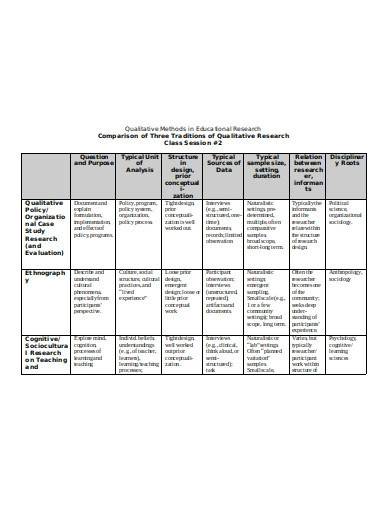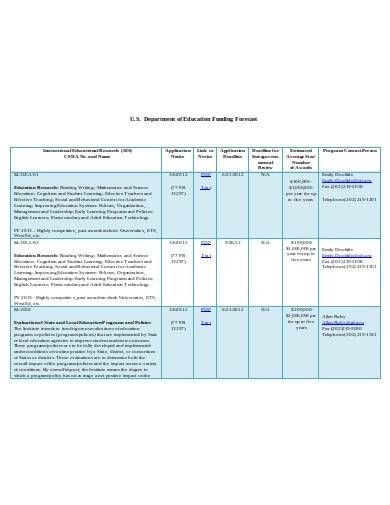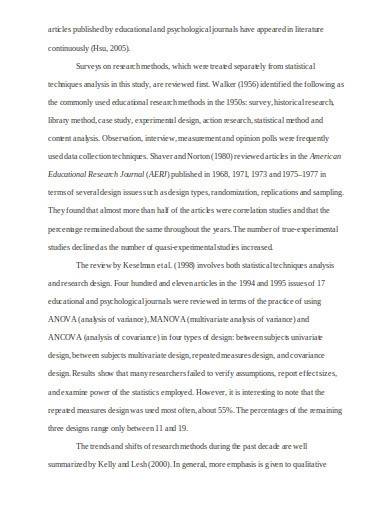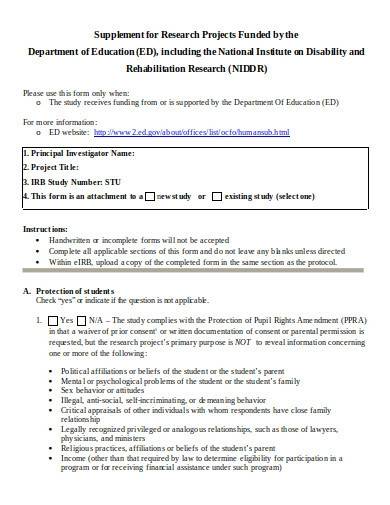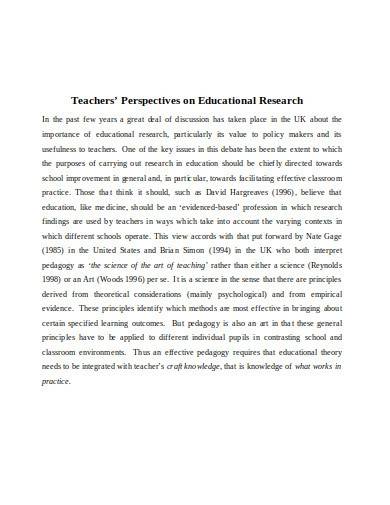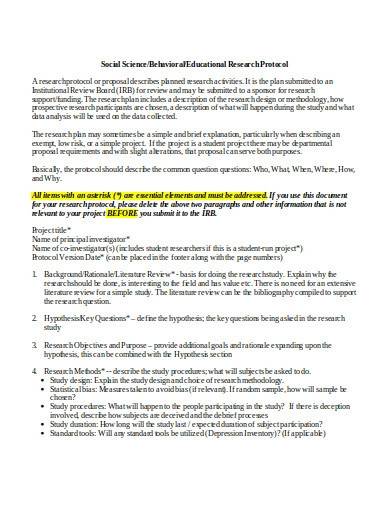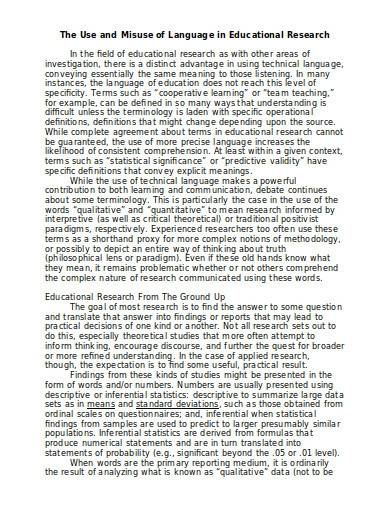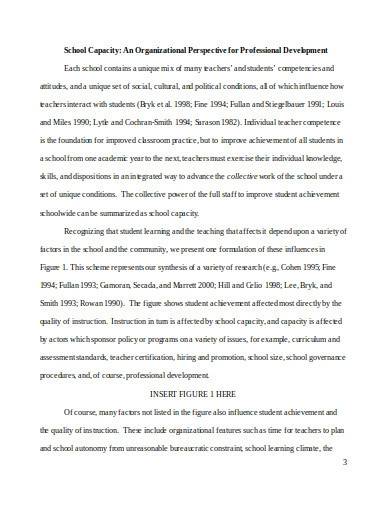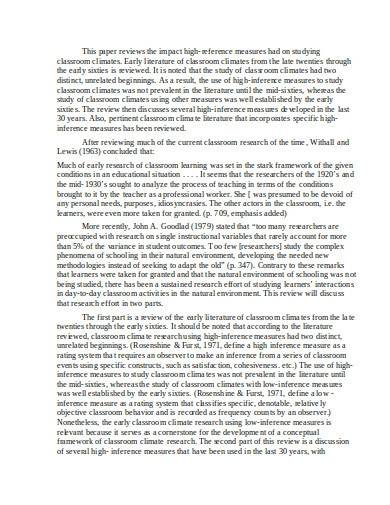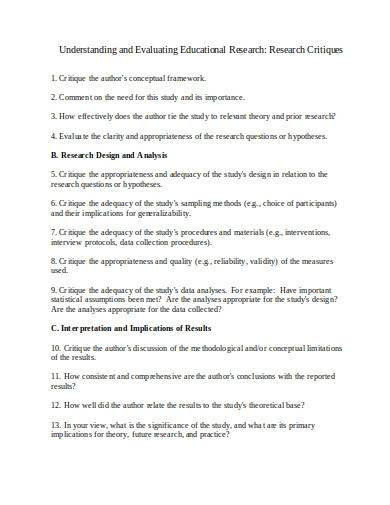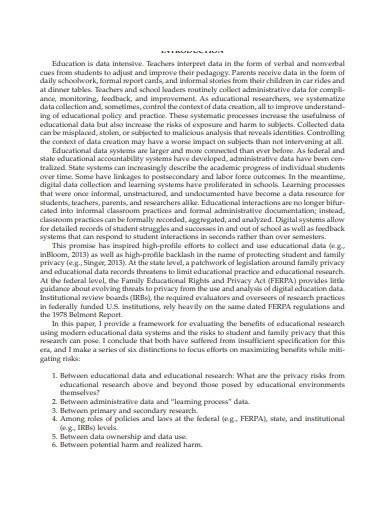The importance of educational qualitative research or quantitative research proposal cannot be overstated. It provides educators, policymakers, and other stakeholders with a scientific basis for making informed decisions about teaching improvement plan. Without research, decisions about educational practices and policies may be based on intuition, personal experience, or untested assumptions, leading to ineffective or even harmful practices. Educational research can help identify best practices, evaluate the effectiveness of different teaching methods and materials, and inform the development of sample curriculum action plan and instructional strategy implementation samples.
FREE 10+ Educational Research Samples & Templates in MS Word | PDF
1. Educational Research Template
2. Educational Research Funding Template
3. Educational Research in Word Template
4. Sample Educational Research Template
5. Teachers’ Perspectives on Educational Research
6. Sample Educational Research Protocol
7. Language in Educational Research Template
8. Sample School Educational Research
9. Educational Research Review Template
10. Evaluation of Educational Research
11. Basic Educational Research Template
What is Educational Research?
Educational research refers to the systematic investigation of educational theories, practices, and policies using various research methods and techniques. The primary goal of educational research is to generate new knowledge and insights that can help improve teaching and learning outcomes, inform educational policies and practices, and contribute to the overall advancement of the field of education.
How To Make an Educational Research?
Making educational research involves a systematic process that begins with identifying a research essay outlines or problem, conducting a literature review samples to gather existing knowledge and insights on the topic, selecting a research design statement and methods, collecting and analyzing data, and presenting and disseminating findings. Here are some general steps you can follow to make educational research:
Step 1- Identify Problem
Begin by identifying a specific question or problem related to education that you want to investigate. It should be a clear and focused question that can be answered through research. Then, conduct a thorough review of existing research and literature related to your research question. This will help you identify any research gap analysis or areas of interest that you can focus on in your own research framework.
Step 2- Select Research Design
Based on your research question and literature review, select a research design and methods that will enable you to answer your research question. The design and methods you select will depend on the type of data you want to collect and the research question you are investigating.
Step 3- Collect and Analyze Data
Once you have selected your research design and methods, collect data using appropriate techniques. Data collection methods may include surveys, interviews, observations, or experiments. Once you have collected your data, analyze it using appropriate statistical or qualitative methods.
Step 4- Present and Disseminate Findings
Finally, present your findings in a clear and concise manner, and disseminate them to relevant audiences such as educators, policymakers, or other researchers. This can be done through research reports, presentations, or publications in academic journals.
What are the different types of research methods used in educational research?
Researchers in the field of education use a range of research methods and techniques to gather and analyze data. These methods may include quantitative methods, which involve the use of statistical analysis to examine large datasets, and qualitative methods, which involve the collection and analysis of non-numerical data such as interviews, observations, and case studies. Mixed-methods research, which combines quantitative and qualitative methods, is also becoming increasingly popular in educational research.
How do I conduct educational research?
Conducting educational research involves a systematic process that begins with identifying a research question or problem, conducting a literature review to gather existing knowledge and insights on the topic, selecting a research design and methods, collecting and analyzing data, and presenting and disseminating findings. It is important to follow ethical guidelines and ensure that the research is conducted in a responsible and respectful manner.
What are some common topics in educational research?
Common topics in educational research include curriculum development, instructional strategies, educational technology, learning assessment and evaluation, teacher training and professional development, and the impact of social and cultural factors on education. Researchers may also focus on specific subject areas, such as mathematics, science, or language arts, or on specific populations, such as students with disabilities or English language learners.
In conclusion, educational research is a critical field of study that has the potential to shape the future of education. It provides a scientific basis for decision-making about educational practices and policies, identifies best practices, evaluates the effectiveness of different teaching methods and materials, and informs the development of new curricula and instructional strategies.
Related Posts
FREE 10+ Content Validity Samples & Templates in PDF
FREE 10+ Construct Validity Samples & Templates in MS Word | PDF
FREE 10+ Code of Human Research Ethics Samples & Templates in MS Word | PDF
FREE 10+ Biography Research Report Samples and Templates in PDF
FREE 10+ System Documentation Samples & Templates in MS Word | PDF
FREE 10+ Process Document Samples & Templates in MS Word | PDF
FREE 10+ Action Research Samples & Templates in PDF
FREE 10+ Longitudinal Research Samples & Templates in PDF | MS Word
FREE 10+ Causal Research Samples & Templates in MS Word | PDF
FREE 10+ Client Discovery Samples & Templates in MS Word | PDF
FREE 10+ Null Hypothesis Samples & Templates in MS Word | PDF
FREE 9+ Product Knowledge Samples & Templates in PDF
FREE 10+ Software Documentation Samples & Templates in MS Word | PDF
FREE 10+ Exploratory Research Samples & Templates in PDF | MS Word
FREE 10+ Experimental Research Samples & Templates in MS Word | PDF

